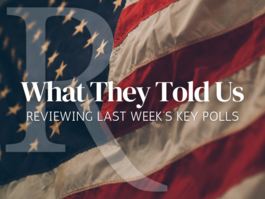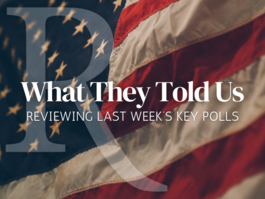Few Cheers for Mortgage Bailout
A Commentary by Froma Harrop
The woman choking up on "Lou Dobbs Tonight" is about to lose her home. Heather DiStefano said that she and her husband can't hack monthly mortgage payments that have nearly tripled in three years to $3,100 from $1,300. And with falling house prices, they owe more on their Worcester, Mass., home than it's worth.
Then you learn that the couple had bought the $306,000 house on a household income of only $79,000. You see that it is big, and wince at the heating costs. And you note that life hadn't thrown this family any curveballs -- no job losses or unexpected medical crises -- that would have driven them under. The ballooning payments were spelled out in their mortgage contract. What was this couple thinking?
They weren't thinking, along with millions of others who signed onto loan agreements they had no hope of meeting. Sad cases most of them, but must we taxpayers subsidize their folly? My hand isn't shooting up.
Nor are a lot of other hands. City and state programs aimed at helping people avoid foreclosure are getting decidedly mixed views.
In Seattle, for example, a small program offering $5,000 loans to keep a few homeowners in their houses has set off a round of loud complaints. If this is happening in liberal Seattle, Democrats in Washington had better be cautious: Taxpayer-funded rescues of the reckless are not an easy sell.
Many Americans who borrow carefully, live modestly or rent while saving up for a house resent being asked to subsidize irresponsible borrowers. Programs that keep these risky mortgages afloat also save the skins of the companies that made a fortune off of them. That's the most objectionable part.
There are ways to ease the pain. The most prudent item in the Senate Democrats' "foreclosure prevention" bill is the $200 million for counseling services. Counselors can help borrowers renegotiate complicated loan agreements with lenders (who may be hard to find). This humane approach would assist those on the edge but does not dump bad loans onto the taxpayers' shoulders.
Another good idea is letting bankruptcy judges change the terms of mortgages. Seems only fair. Judges already have the power to restructure loans for pleasure boats and vacation homes.
Treasury Secretary Henry Paulson has rightly condemned many of the big mortgage-rescue plans as "bailouts" for lenders, investors and speculators. So what if the housing crisis forces some banks out business, as Fed Chairman Ben Bernanke predicts. Let 'em rip, we say.
Where the Bush administration deserves shame and blame is in its failure to regulate the mortgage market. Worse, it stopped states from using their own laws to stem the abuses.
To protect aggressive lenders, the administration had an obscure federal agency, the Office of the Comptroller of the Currency, block predatory lending laws passed by the states. (The agency cited a dusty clause in the 1863 National Bank Act.) In other words, the states were forbidden to protect borrowers.
"The federal government's actions were so egregious and so unprecedented," writes New York Gov. Eliot Spitzer, "that all 50 state attorneys general, and all 50 state banking superintendents, actively fought the new rules."
This mortgage crisis resembles a case of the flu. You want to do everything you can to feel better, but ultimately, it has to run its course. As real estate values go down, housing becomes more affordable, and buyers will appear.
Regulations would help inoculate the public against the future excesses of nasty lenders and borrowers who don't think. That's the way to go. Handing the clean-up job to the responsible bystanders, on the other hand, doesn't seem very fair.
COPYRIGHT 2008 THE PROVIDENCE JOURNAL CO.
DISTRIBUTED BY CREATORS SYNDICATE, INC.
See Other Political Commentary
See Other Commentaries by Froma Harrop
Views expressed in this column are those of the author, not those of Rasmussen Reports.
Rasmussen Reports is a media company specializing in the collection, publication and distribution of public opinion information.
We conduct public opinion polls on a variety of topics to inform our audience on events in the news and other topics of interest. To ensure editorial control and independence, we pay for the polls ourselves and generate revenue through the sale of subscriptions, sponsorships, and advertising. Nightly polling on politics, business and lifestyle topics provides the content to update the Rasmussen Reports web site many times each day. If it's in the news, it's in our polls. Additionally, the data drives a daily update newsletter and various media outlets across the country.
Some information, including the Rasmussen Reports daily Presidential Tracking Poll and commentaries are available for free to the general public. Subscriptions are available for $4.95 a month or 34.95 a year that provide subscribers with exclusive access to more than 20 stories per week on upcoming elections, consumer confidence, and issues that affect us all. For those who are really into the numbers, Platinum Members can review demographic crosstabs and a full history of our data.
To learn more about our methodology, click here.



